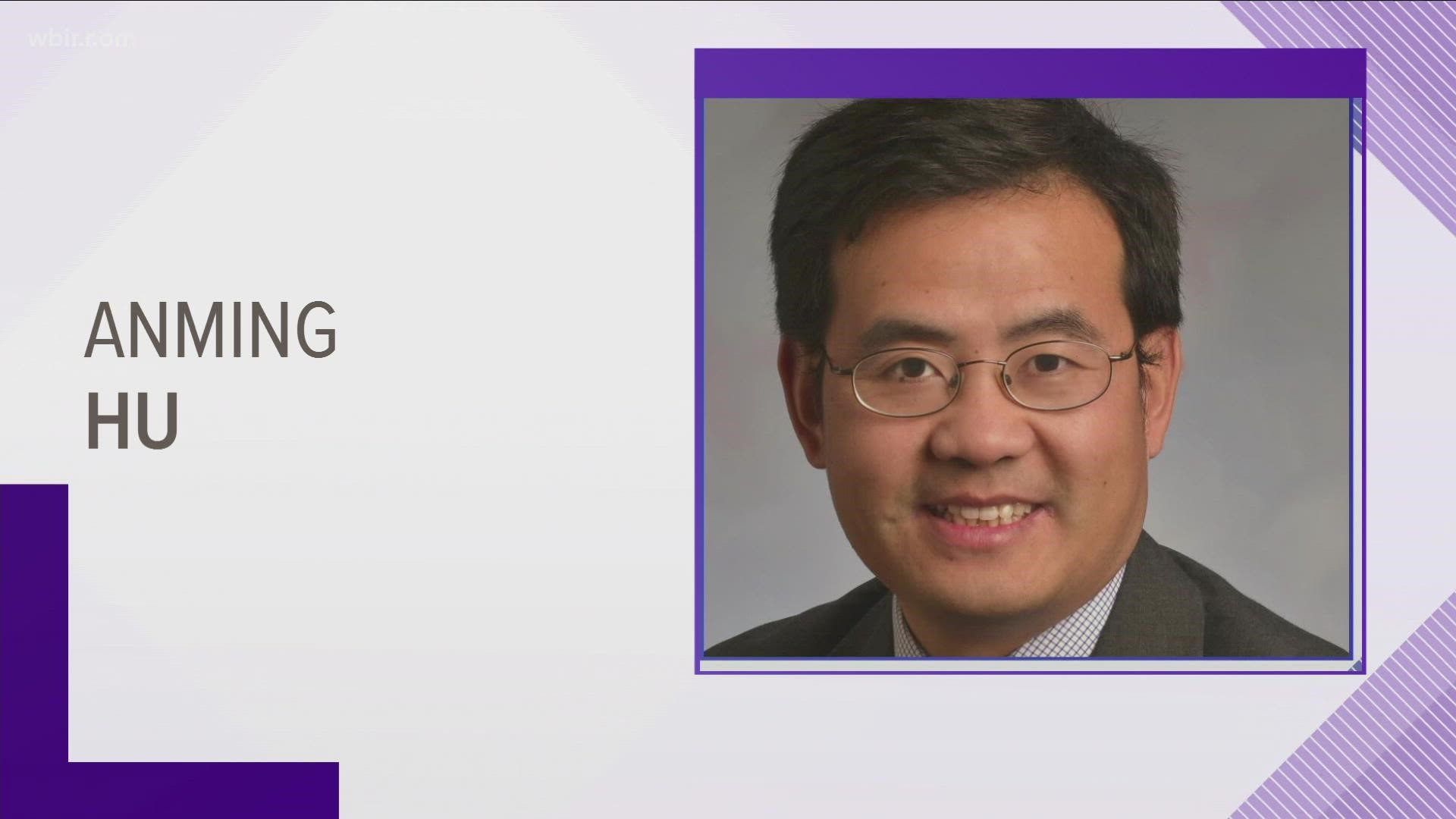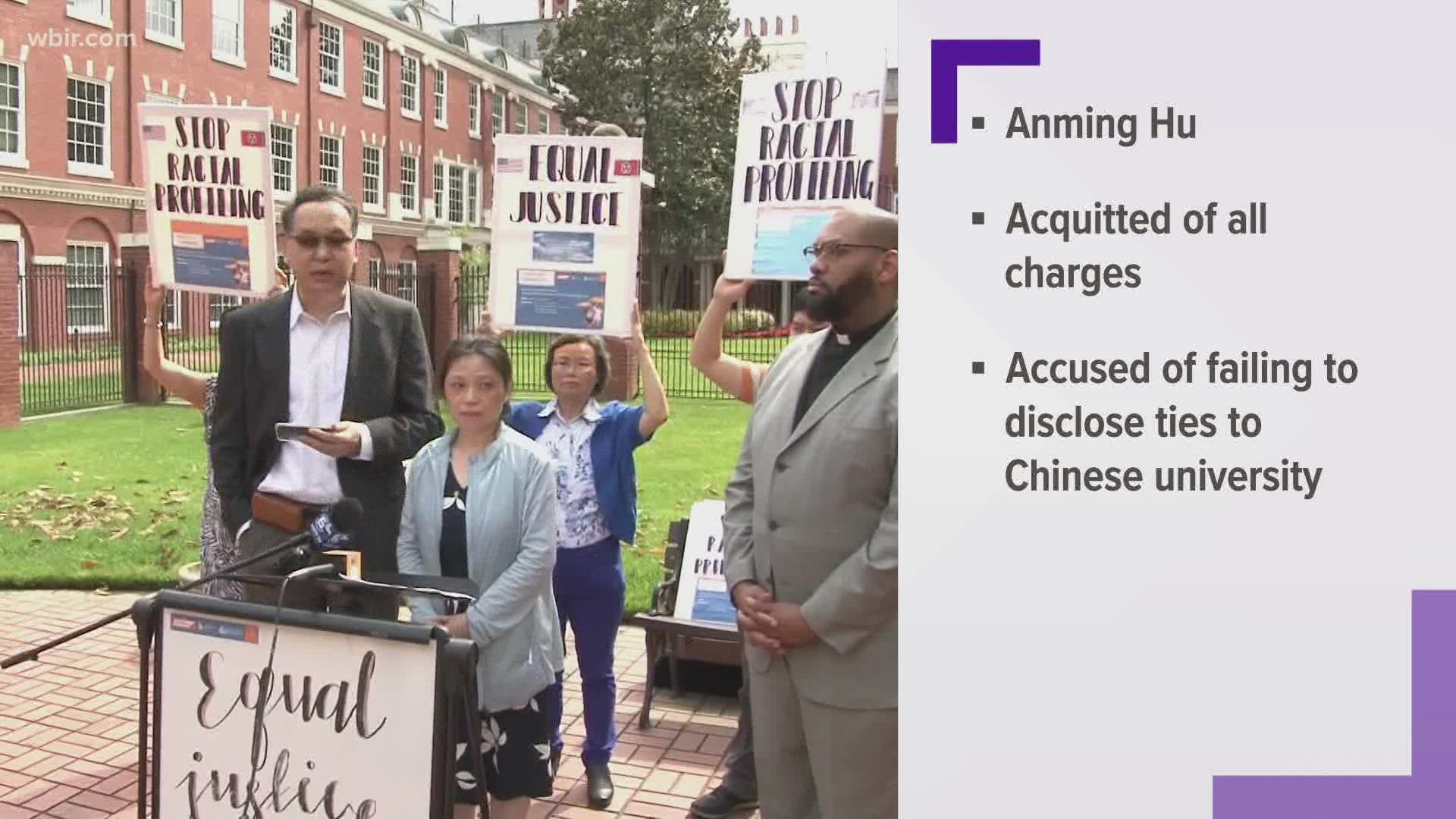KNOXVILLE, Tenn. — Anming Hu, the University of Tennessee professor vindicated after the federal government accused him of hiding his ties to a Chinese university while doing federal contract work, is back on the faculty.
UT Provost John Zomchick and Matthew Mench, dean of the Tickle College of Engineering, informed faculty and staff in a note Thursday.
"We are pleased to share that Dr. Anming Hu has been reinstated to his tenured faculty position as associate professor in the Department of Mechanical, Aerospace and Biomedical Engineering.
"All steps needed to resolve his immigration status were completed on Thursday, January 27. Dr. Hu was immediately reinstated with an effective date of February 1. Working with Dr. Hu, we have developed a plan to help him re-establish his research program in nanomanufacturing.
"Dr. Hu and his family have been through a lengthy and disruptive ordeal. We ask that you please join us in warmly welcoming him back to the faculty."
The announcement follows negotiations and a painful legal process for the Chinese Canadian and his family.
Trial and vindication
Hu was the target, along with other Chinese educators and researchers working in the United States, of what became known as the "China Initiative" during the Trump administration. Federal authorities sought to single out scientists they alleged were hiding ties to the Chinese government and engaging in "economic espionage."
The government alleged Hu violated federal law by hiding a relationship with a Chinese university while securing contracts with NASA. Federal law prohibits NASA from using appropriated funds on projects in collaboration with China or Chinese universities, the government said.
He was charged in federal court with wire fraud and causing false statements to be made. He lost his position on the UT faculty.
An East Tennessee jury worked last summer but couldn't reach a verdict in the case against Hu. U.S. District Court Judge Thomas Varlan in September dismissed the case, and the government chose not to resurrect the prosecution.
Several organizations, researchers, and academics submitted letters this summer to Varlan in support of Hu.
In a Sept. 13 memo to Zomchick, the university's Faculty Senate expressed its hope Hu's acquittal would lead to "full reinstatement of his position on the UTK faculty."
The Asian American Scholar Forum in New York sent on Sept. 3, saying the government built a flimsy and false case against Hu.
The FBI put the professor and his family under surveillance for 21 months, the letter states. "The false accusation also caused the termination of his tenured employment at the University of Tennessee," the letter states.
"It is unfair for scientists to be prosecuted for failures to disclose encouraged activities when the federal agencies' disclosure rules were not clear," the forum wrote. "Many of these prosecutions appear to be based on the principle of presumed guilty until proven innocent.
"Asian American scientists have been targeted and affected disproportionately."
In addition to his work as a professor, Hu is a respected researcher whose areas of interest include nanomanufacturing.
Varlan, in acquitting Hu, said his review of the facts showed the government had not met its burden of proof.
Here's what the Department of Justice says about its prosecutions of some Chinese academics:
"The Department of Justice’s China Initiative reflects the strategic priority of countering Chinese national security threats and reinforces the President’s overall national security strategy. The Initiative was launched against the background of previous findings by the Administration concerning China’s practices. In March 2018, the Office of the U.S. Trade Representative announced the results of an investigation of China’s trade practices under Section 301 of the Trade Act of 1974. It concluded, among other things, that a combination of China’s practices are unreasonable, including its outbound investment policies and sponsorship of unauthorized computer intrusions, and that “[a] range of tools may be appropriate to address these serious matters.”
On its website, the DOJ lists some of its successful prosecutions during the initiative. It doesn't mention Hu's case.


